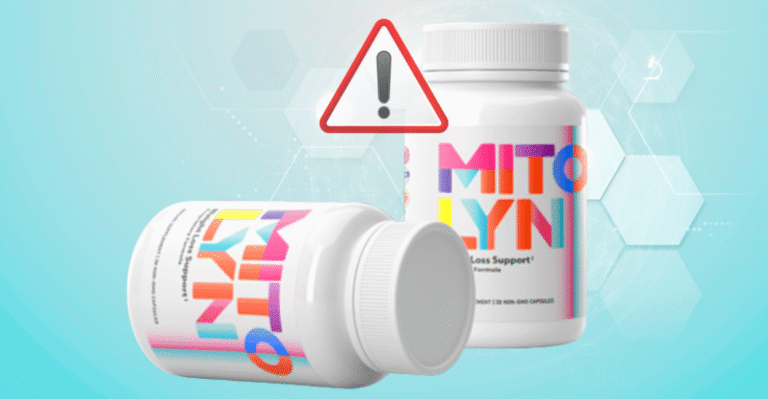Warning: Cannot modify header information - headers already sent in /home/u278635817/domains/mymorninglife.com/public_html/wp-content/plugins/artigosgpt/artigosgpt.php on line 28215
Warning: Cannot modify header information - headers already sent in /home/u278635817/domains/mymorninglife.com/public_html/wp-content/plugins/artigosgpt/artigosgpt.php on line 28215
Stress management is more than just a buzzword—it’s a vital skill for reclaiming calm in a world filled with constant demands. Whether it’s the pressure from work, personal challenges, or unexpected life events, knowing how to effectively control and reduce stress can transform your well-being in profound ways. Understanding stress management means unlocking methods that not only ease anxiety but also boost your overall quality of life.
Today, stress is recognized as a major factor affecting mental and physical health worldwide. From rising anxiety rates to burnout, the need for reliable, actionable strategies is urgent. This article dives deep into practical, science-backed techniques designed to help you take charge of your stress and create a healthier, more balanced lifestyle.
By the end, you’ll discover straightforward steps, expert insights, and a fresh perspective on managing stress that goes beyond clichés—arming you with tools to thrive, not just survive.
Contents
ToggleUnderstanding the Science Behind Stress Management
What Happens to Your Body Under Stress?
When stress hits, your body triggers a fight-or-flight response, releasing hormones like cortisol and adrenaline. This reaction prepares you to face danger but can cause harm if prolonged.
Chronic stress disrupts immune function, sleep patterns, and cognitive abilities, making effective stress management essential for long-term health.
Why Managing Stress Matters for Mental Health
Uncontrolled stress increases anxiety, depression, and irritability, impacting emotional resilience. Stress management techniques help stabilize mood and promote psychological well-being.
Regularly practicing stress control methods strengthens your ability to navigate daily challenges with a clearer mind and calmer heart.
The Link Between Stress and Physical Health
Stress can trigger high blood pressure, heart disease, and digestive issues. Managing stress reduces these risks by lowering strain on the cardiovascular and nervous systems.
Learning how to relax your body through stress management supports overall health and prevents stress-related illnesses.
Mindfulness and Meditation: Cultivating Present-Moment Awareness
How Mindfulness Calms the Nervous System
Mindfulness encourages you to focus on the present, which reduces the brain’s tendency to ruminate on stressors. This practice helps lower cortisol levels naturally.
By calming the nervous system, mindfulness creates space for better decision-making and emotional balance during stressful times.
Simple Meditation Techniques for Beginners
Start with 5-minute guided meditations focusing on breath or body scans. These short sessions can quickly reduce anxiety and improve focus.
Consistent meditation trains your brain to respond to stress with calmness rather than panic, building resilience over time.
Integrating Mindfulness Into Daily Life
Incorporate mindfulness into routine activities like eating, walking, or even washing dishes to stay grounded throughout the day.
This integration fosters habitual stress reduction, turning ordinary moments into opportunities for relaxation and clarity.
Physical Activity: Moving Away from Stress
Exercise as a Natural Stress Reliever
Physical activity stimulates endorphin production, often called “feel-good” hormones, which counteract stress hormones and elevate mood.
Even moderate exercise like walking or stretching can significantly decrease anxiety and improve sleep quality.
Choosing the Right Exercise for Stress Relief
Yoga, tai chi, and swimming are excellent low-impact options that combine movement with mindful breathing, enhancing mental and physical relaxation.
High-intensity workouts release tension and provide a healthy outlet for built-up stress energy.
Creating a Sustainable Fitness Routine
Start with achievable goals and gradually increase intensity to maintain motivation. Consistency is key for long-term stress management benefits.
Mix varied activities to keep routines enjoyable and prevent burnout or boredom.
Nutrition and Stress: Eating Your Way to Calm
The Impact of Diet on Stress Levels
Foods rich in antioxidants, omega-3 fatty acids, and vitamins support brain function and reduce inflammation linked to stress.
Poor nutrition can exacerbate fatigue and mood swings, making stress harder to manage.
Foods That Help Combat Stress
- Leafy greens and berries for antioxidants
- Fatty fish like salmon for omega-3s
- Whole grains for steady energy
- Nuts and seeds for magnesium
Meal Planning Tips for Stress Reduction
Plan balanced meals and avoid excessive caffeine and sugar, which can spike anxiety. Hydrate regularly to keep your mind alert and body calm.
Small, frequent meals stabilize blood sugar, preventing irritability and stress-induced cravings.
Sleep Hygiene: Restoring Balance Through Better Sleep
Why Quality Sleep is Crucial for Stress Management
Sleep restores cognitive functions and regulates emotions, making it a cornerstone of effective stress management.
Chronic sleep deprivation heightens cortisol levels, increasing vulnerability to stress and anxiety.
Creating a Sleep-Friendly Environment
Keep your bedroom cool, dark, and quiet to promote restful sleep. Limit screen time before bed to reduce blue light exposure.
Adopt a calming pre-sleep routine to signal your body it’s time to unwind.
Sleep Habits That Reduce Stress
- Set a consistent bedtime and wake-up schedule
- Avoid heavy meals and caffeine before bedtime
- Practice relaxation techniques like deep breathing
- Limit naps to 20 minutes during the day
- Use your bed only for sleep and intimacy
Social Support: The Power of Connection
How Relationships Influence Stress Levels
Strong social ties provide emotional support, reducing feelings of isolation and buffering stress responses.
Sharing concerns with trusted friends or family can provide new perspectives and practical advice.
Building a Supportive Network
Engage in community groups, clubs, or online forums that align with your interests and values.
Investing time in relationships fosters a sense of belonging and emotional safety during stressful times.
Effective Communication for Stress Relief
Express your feelings openly and listen actively to others. Healthy communication helps resolve conflicts that can cause stress.
Learning to say no and set boundaries protects your mental space and energy.
Professional Help and Stress Management Tools
When to Seek Professional Support
If stress becomes overwhelming or leads to persistent anxiety and depression, consulting a mental health professional is crucial.
Therapists provide personalized strategies and coping mechanisms tailored to your unique situation.
Popular Stress Management Tools and Apps
- Headspace and Calm for meditation guidance
- MyFitnessPal for nutrition tracking
- Sleep Cycle for monitoring sleep quality
- Pacifica for cognitive behavioral therapy techniques
Combining Self-Help and Professional Advice
Use apps and techniques as daily tools, but do not hesitate to reach out for professional help when needed to ensure comprehensive care.
Blending self-care with expert guidance enhances your ability to manage stress effectively and sustainably.
Tracking Progress: Measuring Your Stress Management Success
The Importance of Monitoring Stress Levels
Regularly assessing your stress helps identify triggers and evaluate the effectiveness of your management strategies.
Tracking progress motivates continued practice and highlights areas needing adjustment.
Simple Methods to Track Stress
Use journals, mood apps, or wearables to record daily stress, mood, and physical symptoms.
Data collected can reveal patterns and guide personalized stress management plans.
Adapting Strategies Based on Feedback
- Review your stress logs weekly
- Identify recurring stressors and responses
- Adjust coping techniques accordingly
- Set new, realistic goals to enhance well-being
| Stress Management Technique | Benefits | Recommended Frequency |
|---|---|---|
| Mindfulness Meditation | Reduces anxiety, improves focus | Daily, 5-20 minutes |
| Physical Exercise | Boosts mood, lowers cortisol | 3-5 times per week |
| Balanced Nutrition | Supports brain and body health | Every meal |
| Sleep Hygiene | Restores cognitive and emotional function | Nightly |
| Social Connection | Provides emotional support | Regularly, weekly or more |
Mastering stress management is a journey, not a destination. By understanding your body’s signals and embracing effective techniques, you reclaim control over anxiety and enhance your life quality. Remember, every small step toward managing stress builds a foundation for lasting peace and resilience.
Frequently Asked Questions
What are the most effective stress management techniques?
Effective stress management combines mindfulness, regular physical activity, proper nutrition, quality sleep, and strong social support. Mindfulness and meditation calm the nervous system, while exercise releases mood-enhancing endorphins. Balanced nutrition fuels the brain, and good sleep restores emotional balance. Social connections provide a buffer against stress, making these techniques essential for reducing anxiety and improving overall well-being.
How can I tell if my stress levels are too high?
Signs of excessive stress include persistent anxiety, irritability, trouble sleeping, fatigue, and physical symptoms like headaches or digestive issues. If stress interferes with daily functioning or causes emotional distress, it’s a clear signal to adopt stress management strategies or seek professional help to prevent long-term health consequences.
Can diet really influence how I handle stress?
Absolutely. Certain nutrients support brain health and reduce inflammation, which is linked to stress responses. Eating a balanced diet rich in antioxidants, omega-3 fatty acids, vitamins, and minerals helps stabilize mood and energy levels. Conversely, excessive caffeine and sugar can worsen anxiety and disrupt sleep, making diet a crucial part of managing stress.
Is professional help necessary for stress management?
While many can manage stress with self-help techniques, professional support is vital if stress leads to severe anxiety, depression, or impacts daily life significantly. Therapists can provide tailored coping strategies and interventions that address underlying causes, ensuring a more effective and sustainable approach to stress management.
How long does it take to see results from stress management practices?
Results vary depending on the individual and techniques used. Some may notice immediate relief from practices like deep breathing or meditation, while others experience gradual improvements over weeks or months. Consistency is key—regularly applying stress management methods builds resilience and leads to lasting changes in how you handle stress.
For more in-depth guidance, visit American Psychological Association’s Stress Resources and CDC’s Coping with Stress Guide.
More Articles






















